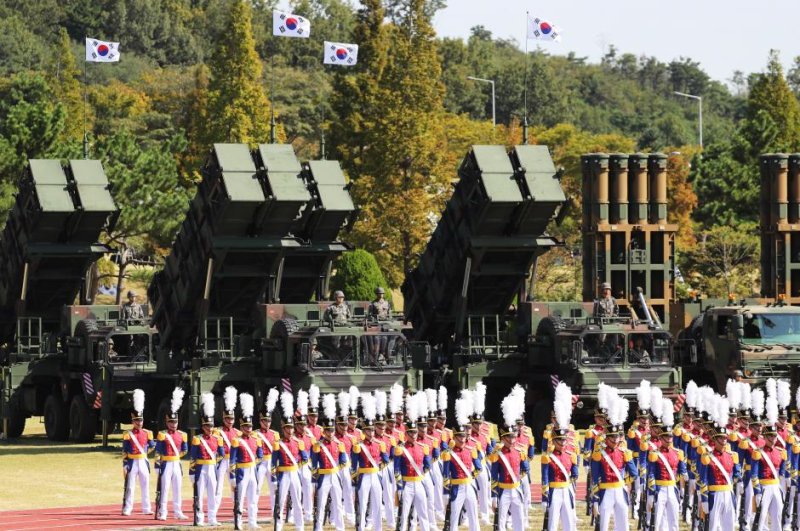South Korea’s M-SAM missile defense system will cost Seoul more than $800 million. Photo by Yonhap
Nov. 17 (UPI) -- A South Korea missile system that could be used to target North Korea Scuds will cost Seoul more than $800 million to develop, a Seoul defense committee said Friday.
South Korea's planned development for the system, which has the capability to destroy incoming ballistic missiles at an altitude of about 12.4 miles, comes at a time when North Korea may be on an "aggressive schedule" to deploy its first operational ballistic missile submarine.
South Korea's defense committee said the purpose of M-SAM development is to "secure a medium-range and medium-sized interceptor system, in response to North Korea ballistic missile and aircraft attacks," News 1 reported.
South Korea's Defense Acquisition Program Administration and LIG Nex1 is developing the system.
Deployment was scheduled for after 2018, but plans came under scrutiny after Oct. 30, when a minor opposition party member claimed South Korean Defense Minister Song Young-moo had ordered the suspension of M-SAM development.
But Seoul confirmed Friday M-SAM plans are being pursued.
According to News 1, the M-SAM could play a crucial role in intercepting midrange ballistic missiles, similar to the way SM-3 missiles are being deployed with the Japanese navy.
South Korea could also deploy the SM-3, but would not be able to do so until its military upgrades the Gwanggaeto-3 batch-2 Aegis ships after 2023.
The missile plans are being followed through at a time when North Korea could be constructing a new submarine, according to 38 North.
"A probable launch canister support, or launch canister, appears to be present within the service tower at the missile test stand [in Sinpo South Shipyard] suggesting the ongoing ejection testing of submarine launch ballistic missiles," writes U.S. analyst Joseph S. Bermudez, Jr.
North Korea has refrained from provocations for about two months, and analysts have offered reasons as to why Pyongyang has stayed quiet after weeks of tests.
Seoul's national intelligence service said Friday North Korea is facing challenges in developing the re-entry technology for its intercontinental ballistic missiles, JTBC reported.
The missiles are a "financial burden" that is becoming harder to handle, the agency said.















